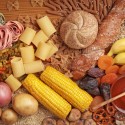How to Lose 10 Pounds in One Week
There are plenty of gimmicks out there that promise to help you lose weight fast.
The unfortunate truth is that many of them simply do not work, and the few of them that do rarely lead to lasting weight loss.
On top of all that, most of them are torturous to live through.
Who wants to exclusively live off of juice for five days?
Do yourself a favor, and steer clear of so-called ‘quick fixes.’
There’s a better way to get results fast!
The ultimate goal is to tap into your body’s natural process of losing weight.
The body is much more complex than what the “calories in/calories out” model would have us believe.
That said, there are dietary and lifestyle tweaks you can make — that won’t leave you feeling deprived, but will help you achieve your weight loss goals.
If you opt to use a combination of scientifically proven methods, you can jumpstart your weight loss journey or shed those final pounds by trimming up to ten pounds in one week.
Reduce Carbohydrates
You’ve heard this one before, and there’s a reason why — it works.
Carbohydrates are made up of starches and sugars, and they boost insulin levels.
When insulin becomes destabilized, it contributes to energy crashes, cravings, and a roller-coaster of poor food choices (1).
Maintaining lower insulin will help you eat less without undue effort (2).
However, you don’t want to completely cut your body off from this easy energy source.
If your primary source of carbohydrates is processed sources and grains, you can completely remove bread, pasta, and chips from your diet.
You’ll also want to reduce your intake of starchy vegetables (such as white potatoes).
Allow yourself the occasional sweet potato if cravings flare up, and opt for high-protein grain-like seeds (such as quinoa) the rest of the time.
Completely Avoid Sugar
Sugar is the biggest culprit when it comes to destabilizing insulin levels.
Focus on entirely eliminating it, with the exception of small amounts of fructose (“fruit sugar”) found in low-glycemic fruits (such as berries and green apples).
It will go a long way towards lowering your insulin levels, which can help reduce water retention and bloating, resulting in quick weight loss (3).
Eliminating sugar also helps in a myriad of other ways.
For instance, sugar consumption impairs the metabolism of fats and carbohydrates (4).
When your body is unable to process these compounds, it is likely to store the energy in fat cells.
Sugar also contributes to inflammation and poor immune function, and when the body is not operating at an optimal level, it is difficult to lose weight.
Finally, sugar compromises the microbiome, which can cause issues with proper digestion and nutrient assimilation and can further inhibit weight loss (5).
This impact can be a bit of a double-whammy since the sugar you eat will cause you to develop more sugar-craving bacteria.
Then you’ll ultimately have more sugar cravings, so do yourself a favor and sidestep it entirely.
Avoid Alcohol and Caffeine
Alcohol and caffeine both interfere with the body’s insulin response (6), which contributes to the insulin roller coaster and cravings discussed above.
When alcohol is processed by the liver, it is converted into sugar compounds, which spike your blood sugar.
By acting on your hormone pathways, caffeine also causes an insulin spike.
Alcohol can also contribute to weight gain or interfere with weight loss in other ways.
Because alcohol is a toxin in the body that needs to be removed, it alters the way other fuel sources metabolize, which can lead to weight gain (7).
Alcohol is also a sleep disruptor, and it may even increase sleep apnea in otherwise asymptomatic individuals (8).
And we all know that caffeine can affect sleep quality.
I’ll discuss how it contributes to the inability to lose weight in the sleep section below.
Enjoy having a drink at the end of the day to wind down? Opt for herbal tea instead.
As an added benefit, many herbal teas are natural diuretics, which can help contribute to the elimination of water retention.
This attribute will also save you from the calories alcohol contains and provide you with a calorie-free alternative!
Drink Green Tea
While green tea may have caffeine in it, you should still drink it.
Many studies have suggested that green tea helps boost metabolism and increases fat loss.
Green tea is rich in catechins, which are polyphenols that help combat obesity (9).
These same catechins help mitigate the effect of caffeine on insulin levels (10), which allows green tea to pack a double punch when it comes to weight loss: the green tea itself helps burn fat, and it allows you to enjoy the metabolism-boosting effect of caffeine without impacting insulin levels (11).
Aim for two cups of green tea per day.
Ideally, drink them in the morning when there is no risk of the caffeine disturbing your sleep routine.
Use Fat for Fuel
If you reduce your carbohydrate intake, eliminate sugar, and give up coffee, what can you use for fuel instead?
Fat is the best form of energy for your body, and it has an added bonus: when you train your body to burn fat, it will more readily and easily burn your stored fat.
This process is called ketogenesis, which involves your body by using ketones (compounds derived from fat) as fuel (12).
A ketogenic diet has been proven to help create lasting weight loss (13).
Furthermore, increasing your intake of high-quality fats will help you feel more satiated, which leads to less food consumption.
The quality of fat is important.
Certain types of fat, such as medium-chain triglycerides (MCTs), actually boost the burning of fat and facilitate weight loss (14).
MCTs naturally occur in coconut oil, and they can be added to smoothies and other beverages in supplement form.
Other sources of good fats are grass-fed butter and cheeses, olive oil, avocados, and fatty cold-water fish (such as salmon).
In addition, you should eliminate low-fat foods, such as reduced-fat dairy.
If you ingest products that have had the fat removed, they typically trigger the brain to seek the calories it was anticipating but did not receive.
Then you could overeat or make poor food choices.
Up Your Protein Intake
Likewise, if you incorporate more protein into your diet, it can boost your metabolism and facilitate weight loss.
One study showed that an increased amount of protein improves satiety (as well as the ability to stick to a meal plan) significantly more than increasing the number of times you eat (15).
Other studies have indicated that consuming more protein consistently helps suppress your appetite (16).
Therefore, if you combine protein with adequate fat consumption, it can be the key to eating less without torturing yourself, which is fantastic news.
We all know that when something is difficult and unsatisfying, we are more prone to quickly stop.
The quality of your protein is also important.
Opt for pastured eggs, grass-fed meats, and wild-caught fish.
Beans and legumes also make an excellent vegetarian protein and come with the added benefit of fiber.
Increase Your Fiber Intake
If you feel like you’re not getting enough food from your high-protein, high-fat diet, you may want to incorporate more fiber (17).
It is a natural ingredient in vegetables, which are low in carbohydrates, high in fiber, and include celery and leafy greens.
Studies have indicated that diets high in protein and fiber are optimal for weight loss that lasts (18).
You may also opt to use a fiber supplement, such as glucomannan, to naturally increase satiety and decrease appetite (19).
Don’t Starve Yourself
On a similar note, do NOT directly restrict your calories.
If you naturally reduce your hunger signals by fueling your body with the appropriate types of macronutrients, it will have a much different impact than starving yourself.
And if you suppress your appetite through the appropriate intake of fat, protein, and fiber, it will boost your metabolism.
Meanwhile, severe calorie restriction will slow it (20).
When your body perceives a lack of food, it will reduce its energy expenditure, meaning that you will burn fewer calories.
Furthermore, when you go back to eating your usual diet, your body will hoard the extra calories in anticipation of the next shortage.
Severe calorie restriction may also increase the likelihood of binge-eating, and should be avoided (21).
Incorporate Intermittent Fasting
On the other hand, intermittent fasting (a method of strategic calorie restriction) has been proven to boost weight loss.
In order to get more benefit from the stabilization of insulin listed above, intermittent fasting can help reset insulin response (22), and it assists with fat loss (23).
By providing the digestive tract with a break, it helps improve digestion, which is critical for optimal health and weight loss.
The easiest way to incorporate intermittent fasting is this: set a cutoff time at night, then avoid eating for 16 hours.
For instance, don’t eat from 8 pm one evening until noon the following day.
Some people may find it easier to stop eating after an afternoon snack at 3 pm, go to sleep early, and start eating again at their usual breakfast time.
You can try this one to two times per week.
Chew Your Food
As mentioned above, improving your digestion is key to sustainable weight loss.
The quickest correction most people need to incorporate is chewing their food.
Your stomach does not have teeth, and chewing plays a very important (if overlooked) role in digestion.
It breaks up your food so that it can be properly digested in the stomach, and nutrients can be assimilated in the intestines.
In addition, if you chew your food mood, you may feel more satisfied with your meal, which could cause you to eat less.
In fact, one study indicated that increased chewing reduced eating by 15% (24).
Longer chewing also provides your body with more time to emit appetite-curbing hormones, which naturally decreases your appetite (25).
So slow down, and enjoy your food!
Prioritize Sleep
When you’re sleep-deprived, your body releases more cortisol, a stress hormone.
Cortisol causes you to store weight, increases your appetite, and can contribute to poor food decisions (26).
Studies show that people tend to crave sugary foods when they do not get adequate amounts of sleep (27).
Sleep debt can also slow your metabolism, which makes it even harder to lose weight.
In order to make sure you get all of the sleep you need, make a sleep routine.
Wake up at the same time every morning, and make sure you start winding down an hour before you intend to hit the hay.
If you dim the lights and avoid computers and phones during this window, you can help ensure that you’re tired when your appointed bedtime rolls around.
Focus on Strength Training, Not Cardio
Many people make the mistake of focusing on cardio when they’re trying to quickly lose weight.
While it is true that cardio helps burn calories, strength training is more effective at preventing your metabolism from slowing down (28).
Furthermore, if you build adequate muscle mass, it will continue to burn more calories, even when you are not working out (29).
Particularly in women, long durations of cardio can contribute to a rise in cortisol levels, which makes it difficult to lose weight (30).
It may sound counterintuitive, but cardio can actually make it harder for you to lose any extra pounds!
Conclusion
The overall goal of a quick, sustainable, high-yield weight loss plan is to make things as easy as possible for you and your body.
It has the added benefit of creating a plan that works, and that you will be able to stick to!
By using the tips above, you can achieve up to ten pounds of weight loss in one week — if you work with (not against) your body.
Remember, naturally curb your appetite and boost your metabolism by eating the right types of food, practice intermittent fasting over periods of time (for instance, overnight), and prioritize sleep and good self-care.
FDA Compliance
The information on this website has not been evaluated by the Food & Drug Administration or any other medical body. We do not aim to diagnose, treat, cure or prevent any illness or disease. Information is shared for educational purposes only. You must consult your doctor before acting on any content on this website, especially if you are pregnant, nursing, taking medication, or have a medical condition.
HOW WOULD YOU RATE THIS ARTICLE?






